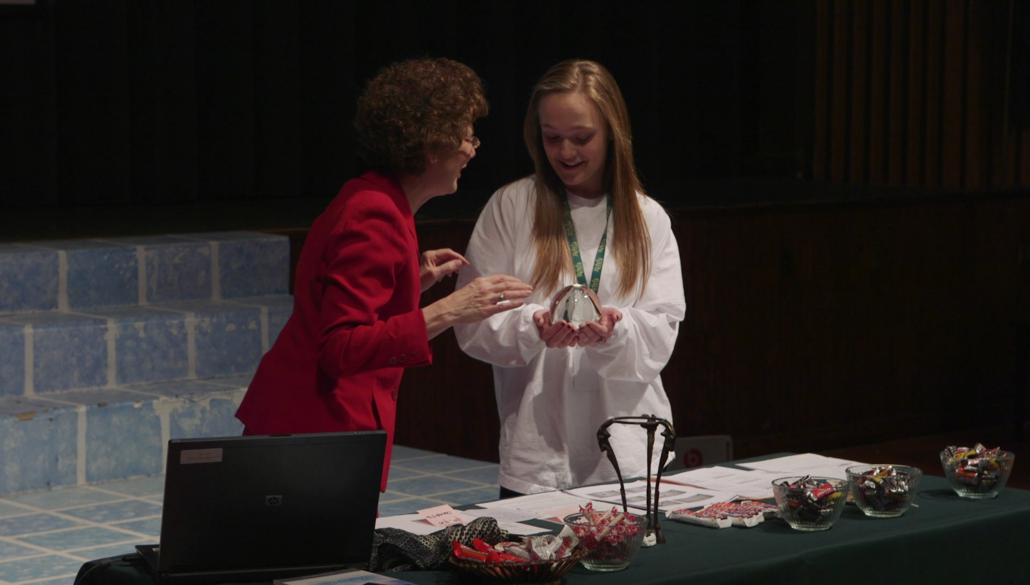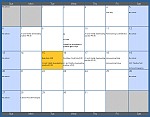(Gift certificates for personalized career coaching can help practically and emotionally.)
An April College Reaction Poll showed that ¾ of students had their internship or post-graduate work plans disrupted due to the coronavirus, with half having offers canceled. Others had them delayed or moved to remote.
It can be easy to lose hope, but now is not the time to bury your head in the sand. You want and need to keep moving forward with the job search so you are in the pipeline when the economy opens up. Plus, there are indeed some industries and companies that are still hiring.
You should also be thinking of additional activities to supplement your job or internship search activities to be ready for the interview question:
“How did you spend your time during the pandemic period?”
You don’t want “looking for a job” to be your only answer.
HERE ARE MY NINE TOP TIPS:
1. Clarify career goals, including back-up plans: College students are often not successful in the job search because they were so busy just getting through that they didn’t clarify what they wanted to do after graduation beyond “get a job and start paying back loans.” Sometimes students really don’t like their major, but feel it’s too late to shift since so much money was invested. It’s never too late to shift, especially when you have decades in front of you. Right now, many people are reinventing themselves so you are in good company. Because of the economic conditions, students may feel like it’s not realistic to find a job you’ll like. Sure, you may need to think about back-up plans and compromise, but at least know your ideal target. The reason knowing your goals and targets make you more effective in the search is because that is necessary for networking.
2. Never Stop Networking: Yes, this remains important and going on even during COVID times. Some things never change. Networking still has a 50-80% success rate, much higher than the “black hole of the Internet.” College students may think of networking as only tied to LinkedIn, but that is just one vehicle of many. The old-fashioned strategy of asking your parents (and other relatives, friends, neighbors, and college professors) “Do you know anyone who is in the ABC career field or XYZ industry?” is still relevant. Professional associations and college career offices are also good sources. Remember that networking is ideally about asking for advice and information not “do you know of any jobs.”
3. Leverage LinkedIn: This is a key resource both for networking and actual job vacancies. First make sure you have a solid profile, smiling photo, and references that you give and receive. For networking, naturally see if any of your contacts is in or knows anyone in your career or industry of interest. Ask them to introduce you for networking purposes; the clearer you are about seeking advice and not a job lead, the more willing they will be. When you send an invitation to anyone, be sure to personalize it. Choose a couple career interest groups to join; observe first and share a resource or comment if you can before reaching out to an individual or group to ask a networking question. Lastly, tap the little known alumni feature for networking. Go to your college page, click on the Alumni link, and search by title, keyword or company. You can also include a city as a key word and filter by graduation year.
4. Join a Professional Association: Join one if you haven’t. Almost all professional associations have greatly discounted student membership. Many allow recent grads under that category for up to a year, or ask for an exception. Information provided can help you learn about a profession both for clarifying goals and for showing knowledge in an interview. Many have career resource sections and job vacancies. Most importantly, they are a source of networking! Whether you make a networking request of an author of an article or the president of the local, state or national group, you may more likely receive a response out of professional responsibility. It one of the very few “cold” networking requests that I suggest, and introverts are often more comfortable in this realm. If you aren’t sure where to start, Google the specific phrase “professional association” followed by one or two words of your career goal.
5. Tap Your College Career Center: You typically will have access to your center as an alumni. Even if you feel there isn’t any help for your field or major, at least try and especially tap any alumni networking program as well as the vacancy list. Having been director of a college career center, I often advise clients on how to best use their college services to complement my more personalized coaching. For example, a staff member may be able to give you a recruiter’s name of an organization they are connected with even if there is no current vacancy.
6. Volunteer Strategically: While volunteering is a worthwhile activity itself, to both serve and feel productive, I advise clients to choose the place and experience strategically. What activities can be connected to your goals? What roles will allow you to have more interaction with staff members, even if remotely. What meetings can you “sit in on” to learn about the bigger picture, even if your role is data entry or making phone calls? Are they open to supporting you having networking meetings with staff members? You can treat this somewhat like an internship, even if the duties are not as significant.
7. Get into Gigs: Consider project or freelance work to learn skills and add content to your resume, portfolio and interviewing. Volunteering may do that for you, but you can also find gigs through freelancing platforms like Upwork.com, the most well-known. Click here for nine additional ones.
8. Upgrade Your Skills: Although you may be tired of being on-line, downtime is an opportunity to show employer you are using your time well by developing your skills. Whether you upgrade your technology skills (more important than ever), take a writing course, or enroll in a workshop through a professional association, you are setting yourself up to feel good about yourself and impress a prospective employer. Many free on-line education platforms exist, although some have a mix of free and fee-based offerings. Click here for a top 10 and click here for a top 25.
9. Identify Hot Spots: Although the economy may feel frozen, in a recent meeting of career counseling professionals, we identified several industries that are hiring during and because of this coronavirus crisis. These include Logistics & Distribution, Grocery and some Retail, Virtual Meeting Platforms, Cybersecurity, SaaS companies, Human Resources, Management Consulting, parts of Healthcare.
I would be honored to help you think strategically about career planning for success and satisfaction.
And I would be happy to help you to create an answer that employers will admire to the question….
“How did you spend you time during the pandemic period?”






